
Islamabad: The Serene Capital of Pakistan
Nestled against the backdrop of the Margalla Hills, Islamabad is a city of stunning natural beauty and modern elegance. As the capital city of Pakistan, it offers a unique blend of tranquility and cosmopolitan sophistication. The meticulously planned cityscape features wide boulevards, lush green parks, and a mix of contemporary and traditional architecture, making it a visual delight for visitors. Islamabad is home to numerous landmarks and attractions that reflect its rich cultural heritage and political significance. The iconic Faisal Mosque, one of the largest mosques in the world, is a must-visit for its striking architecture and serene ambiance. The Pakistan Monument, with its petal-like structure, offers panoramic views of the city and an insight into the country's history through its museum. Nature enthusiasts will find Islamabad a paradise with its abundant green spaces and hiking trails. The Margalla Hills National Park provides numerous trails that offer breathtaking views of the city and surrounding landscapes. Rawal Lake, another natural gem, is perfect for picnics, boating, and bird-watching. Islamabad's culinary scene is vibrant and diverse, offering a range of local and international cuisines. The city's numerous markets and shopping centers, such as Centaurus Mall and Jinnah Super Market, provide ample opportunities for shopping and leisure. Whether it's exploring the city's historical sites, enjoying its natural beauty, or indulging in its culinary delights, Islamabad promises an enriching and memorable experience for every traveler.
Local tips in Islamabad
- Visit the Faisal Mosque early in the morning or late afternoon to avoid crowds and enjoy the serene atmosphere.
- Wear comfortable shoes if you plan to hike the trails in Margalla Hills National Park.
- Try local dishes like Nihari and Biryani at the traditional eateries for an authentic culinary experience.
- Use ride-hailing apps like Uber or Careem for convenient and safe transportation around the city.
- Carry a light jacket or shawl as evenings can get cool, especially in the winter months.
Islamabad: The Serene Capital of Pakistan
Nestled against the backdrop of the Margalla Hills, Islamabad is a city of stunning natural beauty and modern elegance. As the capital city of Pakistan, it offers a unique blend of tranquility and cosmopolitan sophistication. The meticulously planned cityscape features wide boulevards, lush green parks, and a mix of contemporary and traditional architecture, making it a visual delight for visitors. Islamabad is home to numerous landmarks and attractions that reflect its rich cultural heritage and political significance. The iconic Faisal Mosque, one of the largest mosques in the world, is a must-visit for its striking architecture and serene ambiance. The Pakistan Monument, with its petal-like structure, offers panoramic views of the city and an insight into the country's history through its museum. Nature enthusiasts will find Islamabad a paradise with its abundant green spaces and hiking trails. The Margalla Hills National Park provides numerous trails that offer breathtaking views of the city and surrounding landscapes. Rawal Lake, another natural gem, is perfect for picnics, boating, and bird-watching. Islamabad's culinary scene is vibrant and diverse, offering a range of local and international cuisines. The city's numerous markets and shopping centers, such as Centaurus Mall and Jinnah Super Market, provide ample opportunities for shopping and leisure. Whether it's exploring the city's historical sites, enjoying its natural beauty, or indulging in its culinary delights, Islamabad promises an enriching and memorable experience for every traveler.
When is the best time to go to Islamabad?
Iconic landmarks you can’t miss
Faisal Masjid
Discover the beauty and serenity of Faisal Masjid, Islamabad's architectural gem and one of the largest mosques in Pakistan.
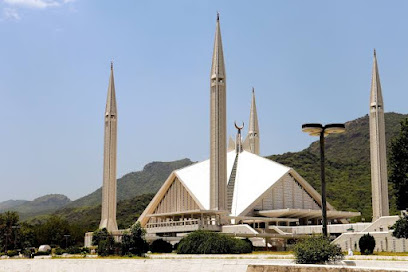
Shakarparian National Park
Discover the lush greenery and breathtaking views of Shakarparian National Park, a serene escape in Islamabad perfect for nature lovers and families.
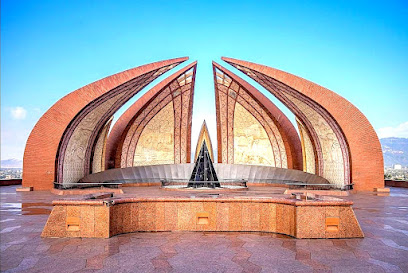
Fatima Jinnah Park (F-9 Park)
Experience the beauty and fun of Fatima Jinnah Park, a perfect blend of natural landscapes and recreational activities in Islamabad.
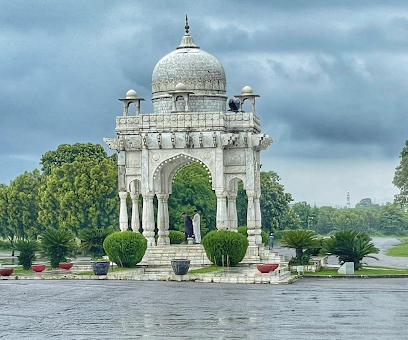
Daman-e-Koh
Experience breathtaking views of Islamabad from Daman-e-Koh, a serene escape into nature that combines stunning landscapes and hiking adventures.
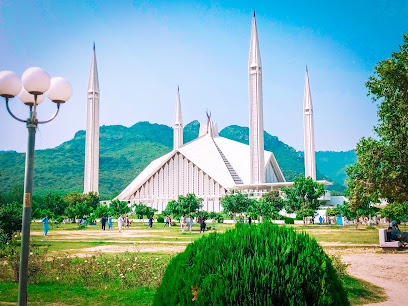
Pakistan Monument
Explore the Pakistan Monument in Islamabad, a breathtaking tribute to the nation's unity and rich cultural heritage, blending history and artistry in one iconic landmark.
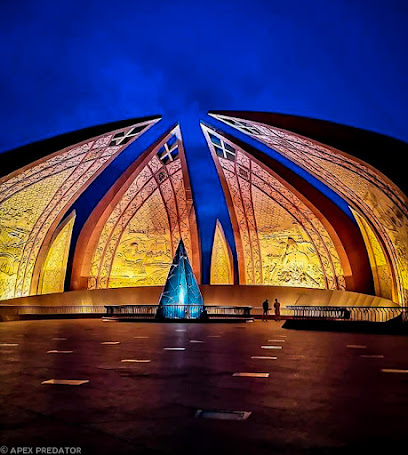
Lake View Park
Discover the beauty of nature at Lake View Park, a serene escape in Islamabad with stunning views and recreational activities for all.
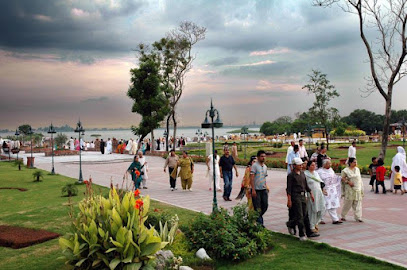
Lok Virsa Heritage Museum
Discover the cultural richness of Pakistan at Lok Virsa Heritage Museum, where tradition meets artistry in the heart of Islamabad.
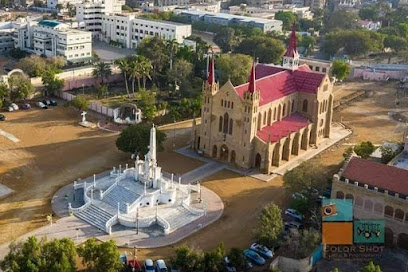
Pakistan Monument Museum
Explore Pakistan's vibrant heritage at the Pakistan Monument Museum, where history and culture come alive through captivating exhibits.
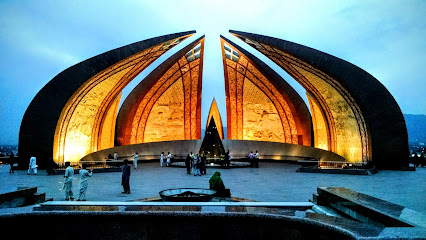
Japanese Children Park
Explore the unique blend of culture and fun at Japanese Children Park, a family-friendly destination in Islamabad's beautiful landscape.
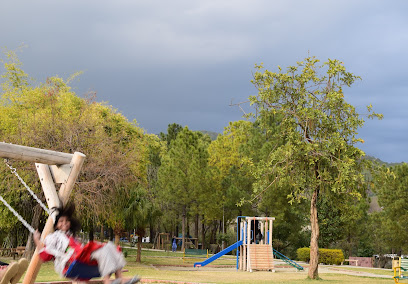
Daman-e-Koh Park
Discover the breathtaking views and natural beauty of Daman-e-Koh Park, a must-visit attraction in Islamabad offering tranquility and adventure.
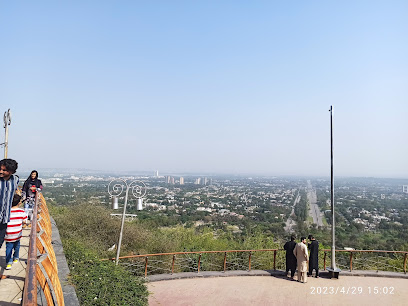
Daman-e-Koh View Point
Discover breathtaking vistas at Daman-e-Koh View Point, a serene escape in Islamabad's Margalla Hills, perfect for nature lovers and photographers.
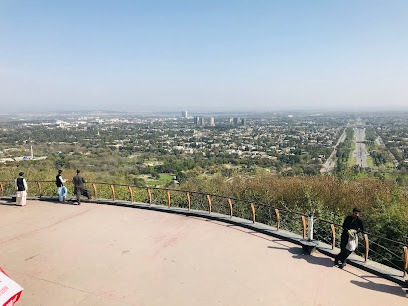
Shah Allah Ditta Caves
Discover the enchanting Shah Allah Ditta Caves in Islamabad, a blend of natural beauty and historical significance for every explorer.
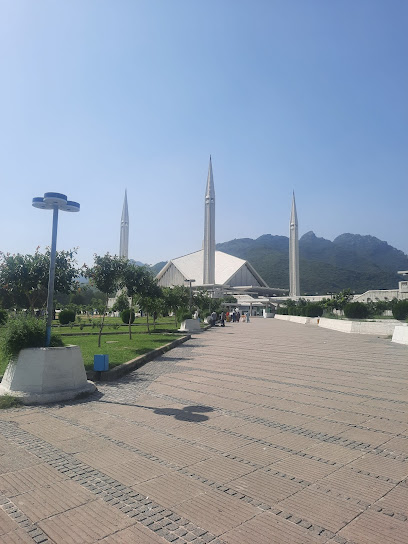
Fun City | Pakistan's #1 Award Winning Family Entertainment Centre | The Centaurus Mall
Experience endless fun and excitement at Fun City, Islamabad's premier family entertainment center in The Centaurus Mall, featuring rides, games, and more.
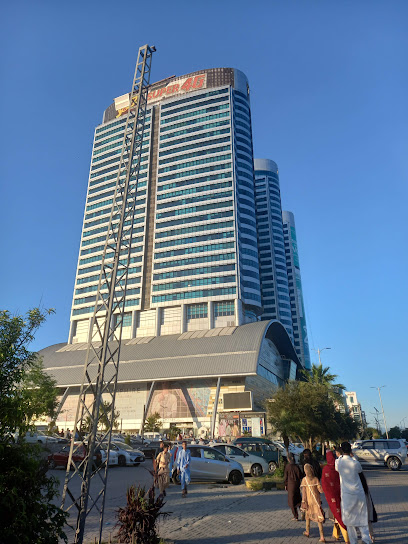
Shahdara Valley Restaurant
Experience the serenity and flavors of Shahdara Valley Restaurant in Islamabad, where nature meets culinary delight in a picturesque setting.
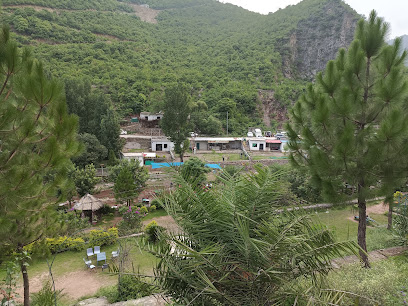
Shakarparian View Point
Discover breathtaking views and serene landscapes at Shakarparian View Point in Islamabad, a must-visit destination for every traveler.
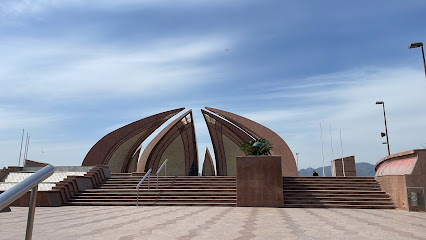
Unmissable attractions to see
Faisal Mosque Islamabad
Discover the beauty of Faisal Mosque, an architectural gem and spiritual haven nestled in the heart of Islamabad, Pakistan.
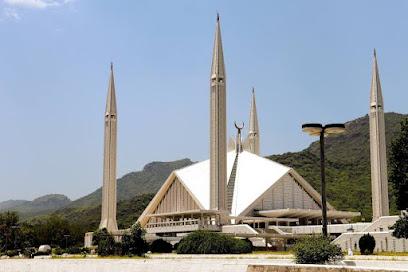
Shakarparian National Park
Explore the natural beauty and tranquility of Shakarparian National Park in Islamabad, a perfect getaway for nature lovers and adventure seekers.
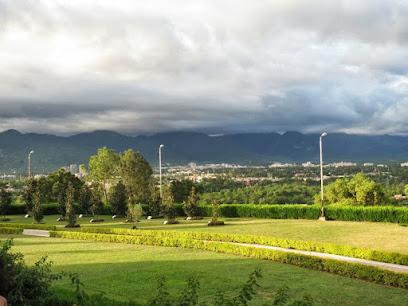
Fatima Jinnah Park (F-9 Park)
Discover the lush landscapes and recreational wonders of Fatima Jinnah Park, an urban oasis in the heart of Islamabad.
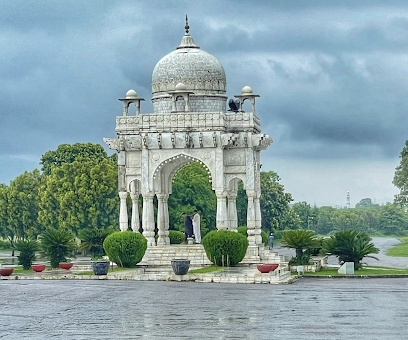
Daman-e-Koh
Experience the breathtaking views of Islamabad at Daman-e-Koh, a serene escape into nature with panoramic vistas and scenic trails.
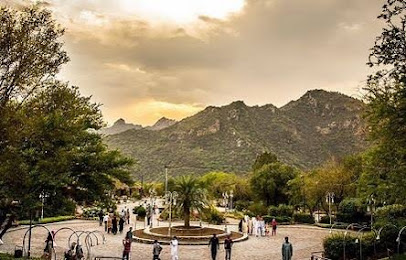
Lok Virsa Heritage Museum
Explore Pakistan's cultural heritage through art and history at Lok Virsa Heritage Museum in Islamabad, a treasure trove of artistic diversity.
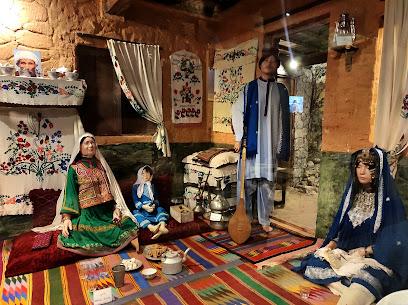
Lake View Park
Experience the tranquility and natural beauty of Lake View Park in Islamabad, a perfect escape for nature lovers and families seeking adventure.
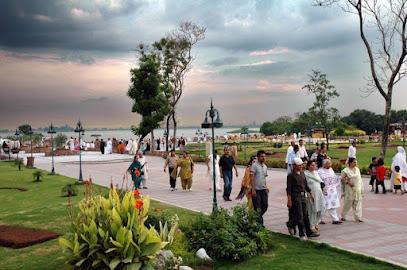
Pakistan Monument Museum
Explore the rich history of Pakistan at the Pakistan Monument Museum, where culture and heritage come alive in Islamabad's iconic landmark.
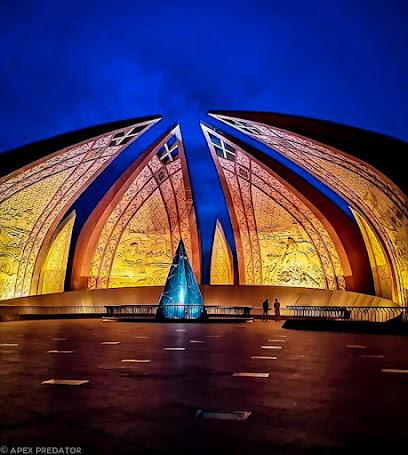
Kachnar Park
Explore Kachnar Park, a serene urban oasis in Islamabad, perfect for relaxation, picnics, and stunning nature photography.
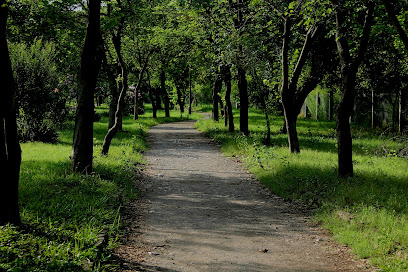
Japanese Children Park
Discover the enchanting Japanese Children Park in Islamabad, a serene haven filled with fun activities and beautiful landscapes for families and tourists.
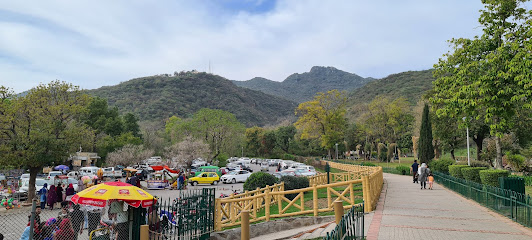
Taxila Museum
Explore the rich heritage of the Gandhara civilization at Taxila Museum, showcasing unparalleled ancient artifacts and sculptures in a tranquil setting.
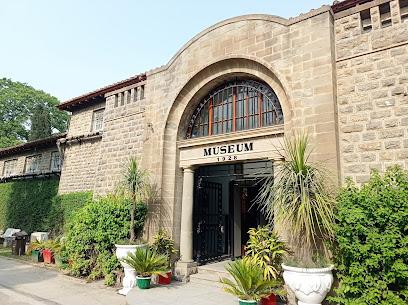
Pakistan Museum of Natural History
Explore the captivating natural history of Pakistan at the Pakistan Museum of Natural History, located in the scenic Shakarparian National Park.

Pakistan National Council of Arts (PNCA)
Explore the dynamic world of Pakistani art and culture at the Pakistan National Council of Arts in the heart of Islamabad.
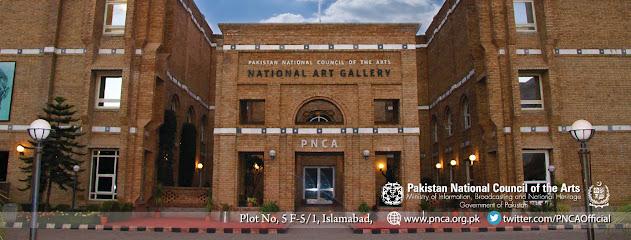
Daman-e-Koh View Point
Discover the stunning vistas of Islamabad at Daman-e-Koh View Point, a top destination for breathtaking views and serene hiking experiences.
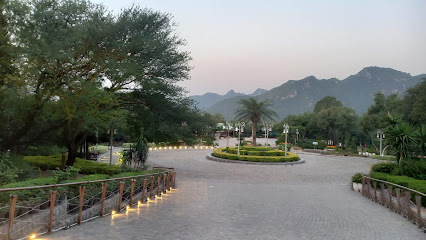
Khanpur Dam
Discover the tranquility and adventure at Khanpur Dam, a stunning reservoir in Haripur, Khyber Pakhtunkhwa, perfect for outdoor enthusiasts and nature lovers.
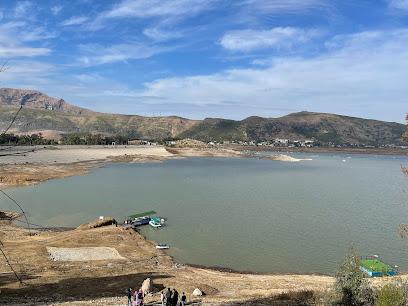
Shah Allah Ditta Caves
Explore the historic Shah Allah Ditta Caves in Islamabad, a blend of ancient wonder and breathtaking natural beauty, perfect for adventurous souls.
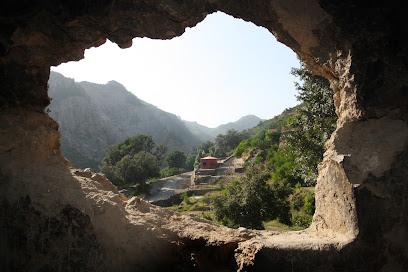
Essential places to dine
The Monal Restaurant
Experience breathtaking views and exquisite cuisine at The Monal Restaurant in Islamabad's Margalla Hills.
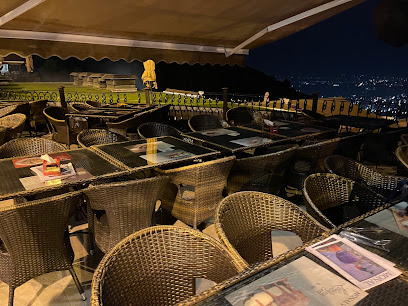
Howdy Islamabad
Experience the vibrant flavors of Howdy Islamabad - where delicious burgers and crispy chicken wings meet a fun atmosphere in the heart of the city.
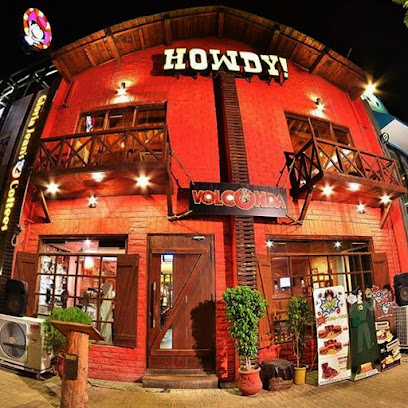
Des Pardes Restaurant
Experience authentic Pakistani cuisine at Des Pardes Restaurant in Islamabad's historic Saidpur village amidst stunning natural beauty.
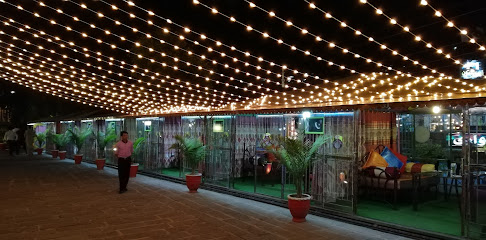
1969 Restaurant
Discover the rich flavors of Pakistan at 1969 Restaurant – where tradition meets modern culinary artistry in Islamabad.
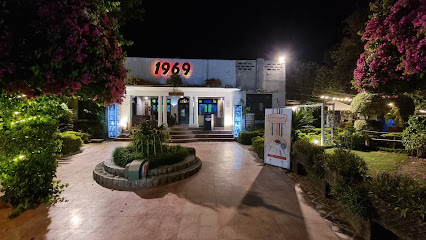
Asian Wok
Discover the essence of Pan-Asian cuisine at Asian Wok in Islamabad's Beverly Centre – where every dish tells a story.
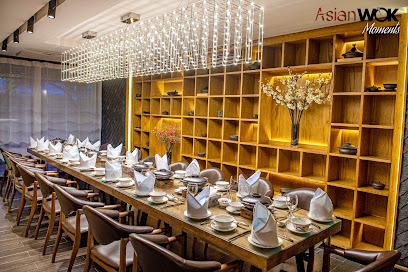
Tuscany Courtyard Islamabad
Experience authentic Italian cuisine at Tuscany Courtyard in Islamabad—where every dish tells a story.
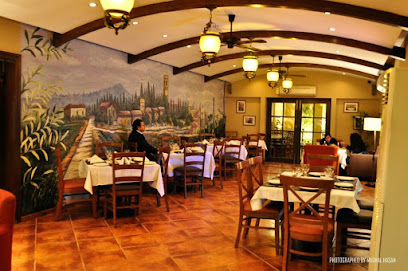
Bar B.Q. Tonight
Discover the essence of Pakistani cuisine at Bar B.Q. Tonight in Islamabad - where every bite tells a story.
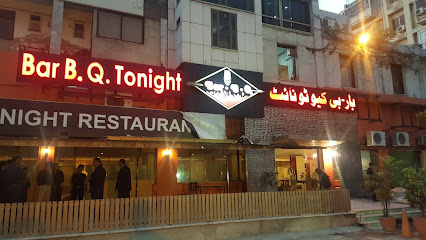
Usmania Restaurant
Experience authentic Pakistani cuisine at Usmania Restaurant in Islamabad – where tradition meets taste in every delightful dish.
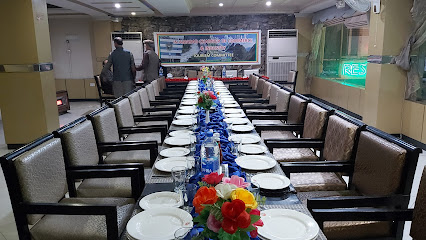
Habibi Restaurant F-8
Experience the essence of Pakistani cuisine at Habibi Restaurant F-8 - where tradition meets taste in a vibrant dining atmosphere.
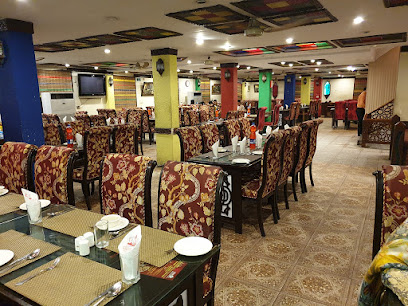
Tandoori Restaurant
Experience authentic Pakistani cuisine at Tandoori Restaurant in Islamabad—home to mouthwatering tandoori dishes and warm hospitality.
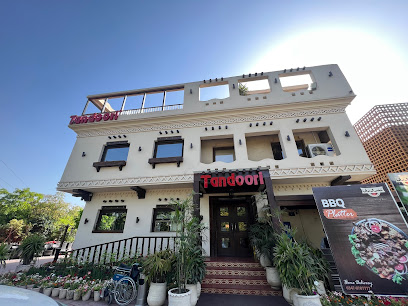
Butt Karahi By Usman Tahir
Discover authentic Pakistani flavors at Butt Karahi By Usman Tahir in Islamabad - A must-visit destination for food lovers!
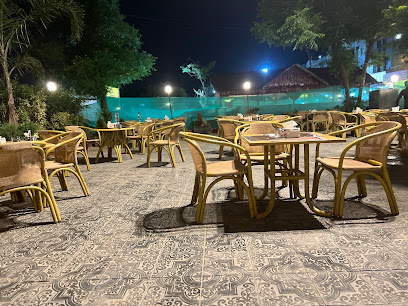
Yum Chinese & Thai
Experience exquisite Chinese and Thai cuisine in Islamabad at Yum Chinese & Thai – where every dish tells a story.
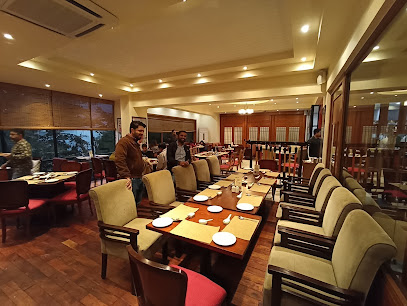
Ox & Grill Steakhouse
Savor mouthwatering steaks in the heart of Islamabad at Ox & Grill Steakhouse - where every meal is an unforgettable experience.
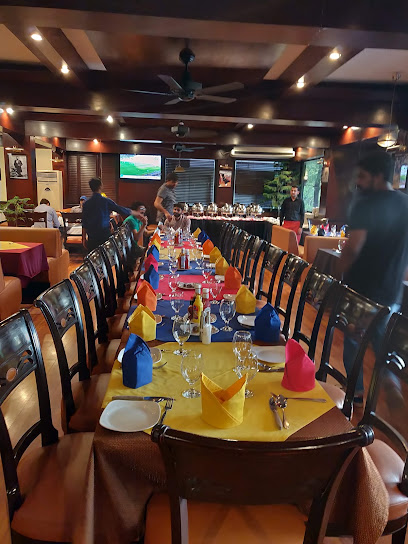
Salt n'Pepper
Experience authentic Pakistani flavors at Salt n'Pepper in Islamabad - where every dish tells a story.
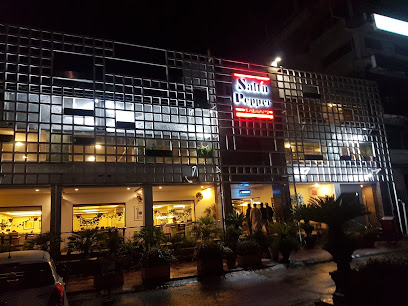
Chilman Restaurant
Discover exquisite flavors at Chilman Restaurant in Islamabad - where tradition meets modern dining.
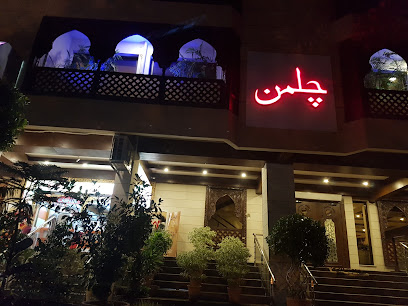
Markets, malls and hidden boutiques
One Shop Toys Official
Explore One Shop Toys Official in Islamabad for a unique selection of toys, costumes, and gifts that cater to all ages and occasions.
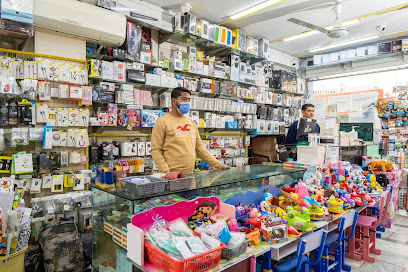
Ideas
Discover the vibrant world of fashion at Gul Ahmed Ideas, Islamabad's premier clothing store, offering quality textiles and stylish apparel.
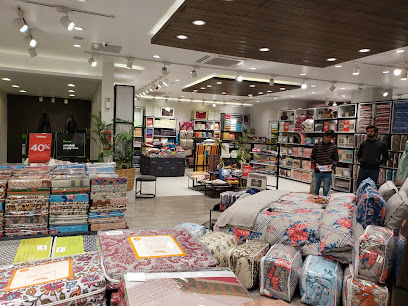
Miniso F-10
Explore Miniso F-10 in Islamabad for unique gifts and stylish products at affordable prices, embodying the essence of modern shopping.
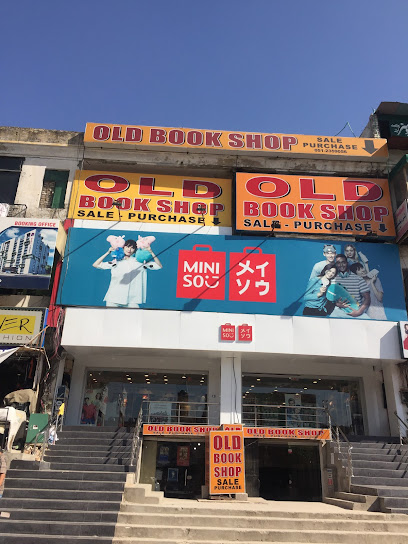
Dollar Store G-9
Explore the vibrant Dollar Store G-9 in Islamabad for unbeatable bargains on a variety of items, from essentials to unique finds.
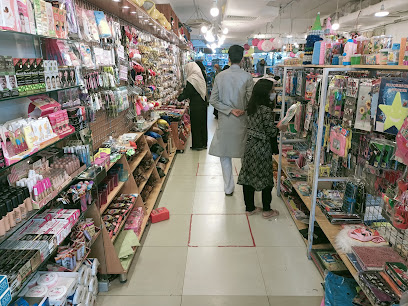
He & She Shopping Mall
Discover the ultimate shopping experience at He & She Shopping Mall, Islamabad's go-to destination for trendy clothing for all ages.
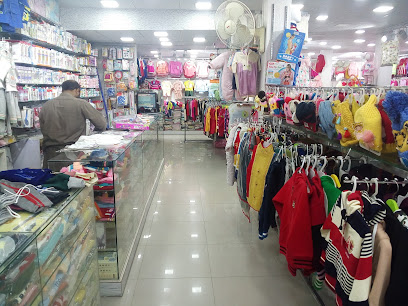
Resham Fabrics
Discover the vibrant heritage of Pakistani textiles at Resham Fabrics, the ultimate shopping destination for women's clothing and unique fabrics in Islamabad.
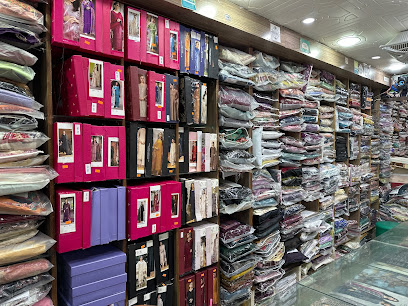
Haroons
Explore Haroons in Islamabad for unique gifts, jewelry, and local treasures that capture the essence of Pakistani culture.
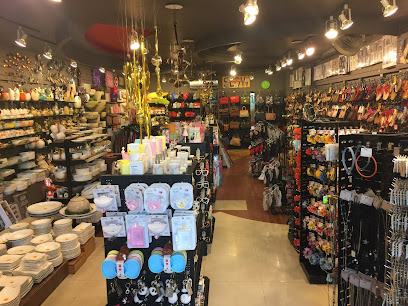
Illusions
Explore Illusions, Islamabad's enchanting gift shop, showcasing unique crafts and unforgettable souvenirs from Pakistan's vibrant culture.
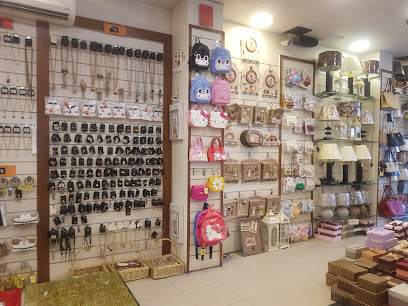
Behbud Boutique
Discover authentic Pakistani craftsmanship at Behbud Boutique, a charming shopping destination in Islamabad showcasing handmade clothing, accessories, and home decor.
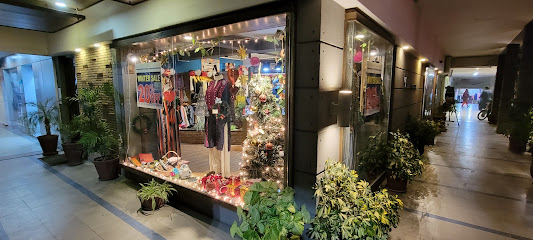
BATIK
Discover BATIK in Islamabad: A stylish clothing store blending modern trends with local craftsmanship, perfect for fashion lovers and tourists.
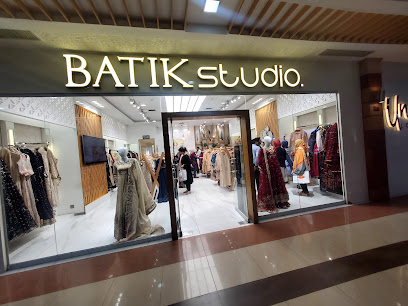
Only Yes Blue Area Outlet
Explore the dynamic fashion scene at Only Yes Blue Area Outlet in Islamabad, offering trendy clothing at accessible prices for every style.
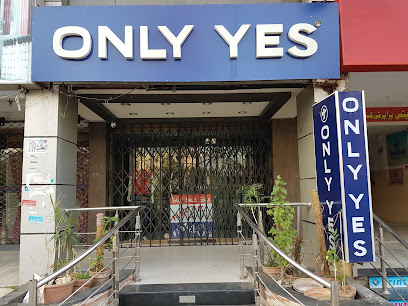
Kayal, Islamabad
Discover unique gifts and stylish women's clothing at Kayal, the perfect shopping destination in Islamabad for tourists seeking local treasures.
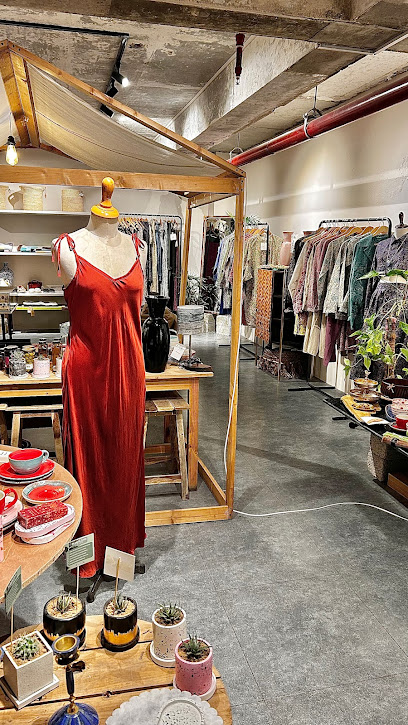
The Gift Shop
Explore The Gift Shop in Islamabad for unique souvenirs and exquisite home decor that reflect the rich culture of Pakistan.
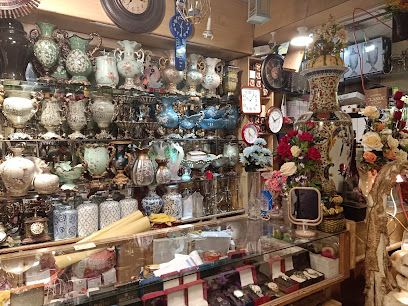
Unique Department Store
Discover a diverse shopping experience at the Unique Department Store in Abdullah Town, Islamabad, where quality meets variety for every traveler.
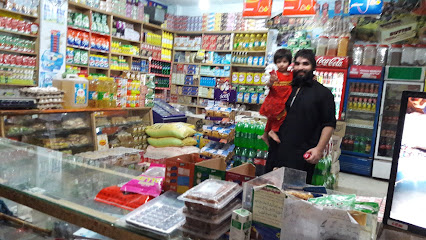
Hang Ten
Discover contemporary fashion at Hang Ten in The Centaurus Mall, Islamabad - a stylish clothing store for all your wardrobe needs.

Essential bars & hidden hideouts
Bar B.Q. Tonight
Experience the authentic taste of Pakistani barbecue at Bar B.Q. Tonight, a lively restaurant in Islamabad offering a mouthwatering array of grilled specialties.
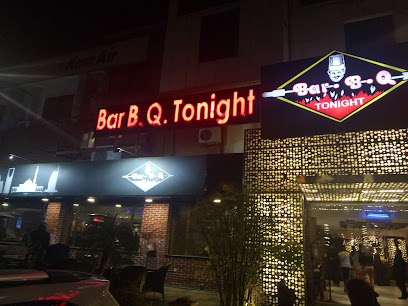
Burn Out Restaurant & Cafe
Discover the culinary delights of Burn Out Restaurant & Cafe in Islamabad, where diverse cuisines and a vibrant ambiance meet.
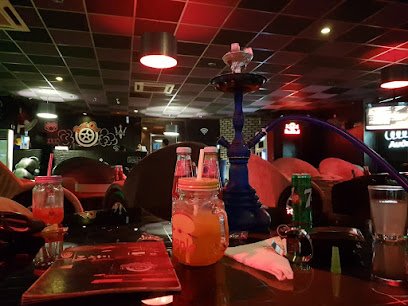
MaiKada Cafe and Restaurant /Best Sheesha cafe in Islamabad Shisha Shesha Lounge hookah lounge In Islamabad F10 Pakistan
Experience the vibrant ambiance and delicious sheesha at MaiKada Cafe, a top destination for relaxation and socializing in Islamabad.
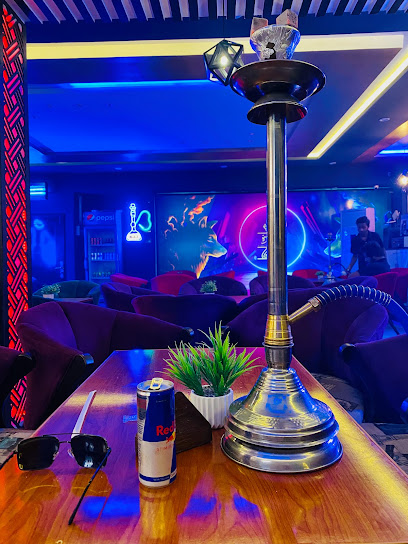
Canada Club diplomatic Enclave
Discover Canada Club, a delightful Canadian restaurant in Islamabad's Diplomatic Enclave, offering authentic flavors and a cozy atmosphere.
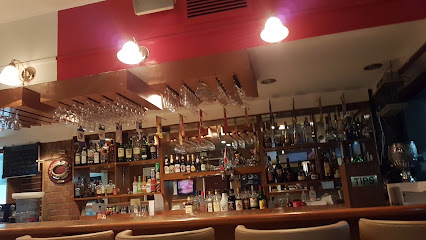
THE CROWN LOUNGE
Discover The Crown Lounge, Islamabad’s premier bar offering a vibrant atmosphere and an extensive menu of drinks for an unforgettable night out.
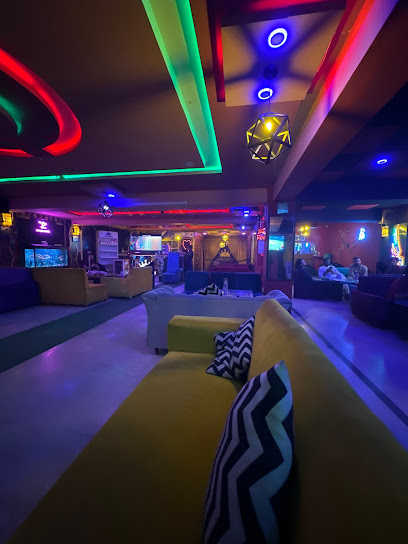
Fume Sports Bar
Experience the thrill of live sports and delicious cuisine at Fume Sports Bar, Islamabad's favorite gathering spot for fans and food lovers.
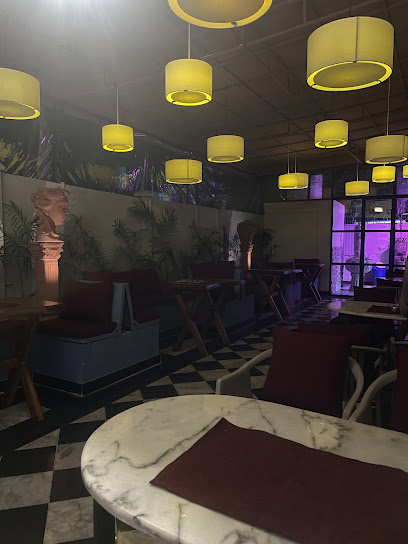
I Am Happy.
Experience the vibrant nightlife of Islamabad at 'I Am Happy', your go-to bar for unforgettable drinks and lively atmosphere.

Webpreneur Lounge
Discover the creative pulse of Islamabad at Webpreneur Lounge, a vibrant co-working space for entrepreneurs and digital nomads.

CC Lounge
CC Lounge: A Chic Oasis in Islamabad for Relaxation, Socializing, and Exceptional Events.
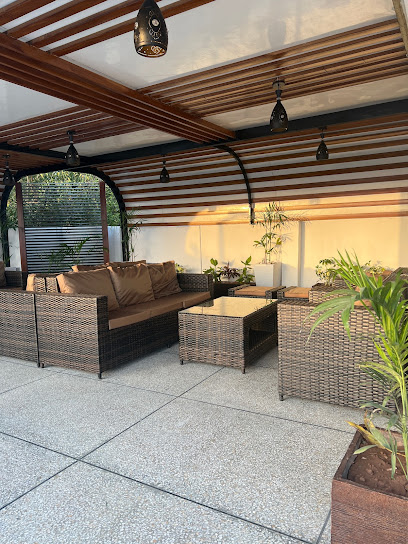
Pulp Fusion
Experience Islamabad's nightlife at Pulp Fusion, a lively bar in The Centaurus Mall offering unique drinks and a vibrant atmosphere.
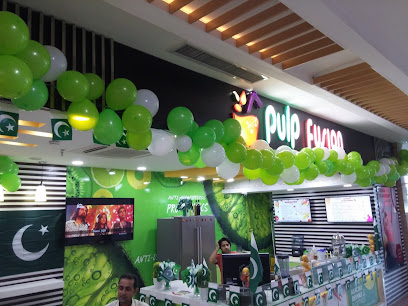
Crazy Burger
Discover Crazy Burger in Islamabad, where mouthwatering grilled burgers meet a vibrant atmosphere, perfect for food lovers and tourists alike.
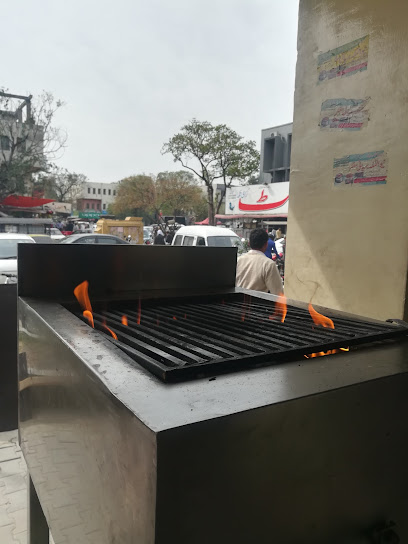
Event Venue Islamabad - BLUEZ
Discover the lively ambiance of BLUEZ, Islamabad's top bar and event venue, offering a unique blend of entertainment and relaxation in the heart of the city.

Executive lounge
Discover tranquility at the Executive Lounge in Islamabad, where comfort meets elegance amidst the city's vibrant atmosphere.

Blenders
Discover Blenders in Islamabad, where cozy ambiance meets a vibrant nightlife with exquisite drinks and friendly service.
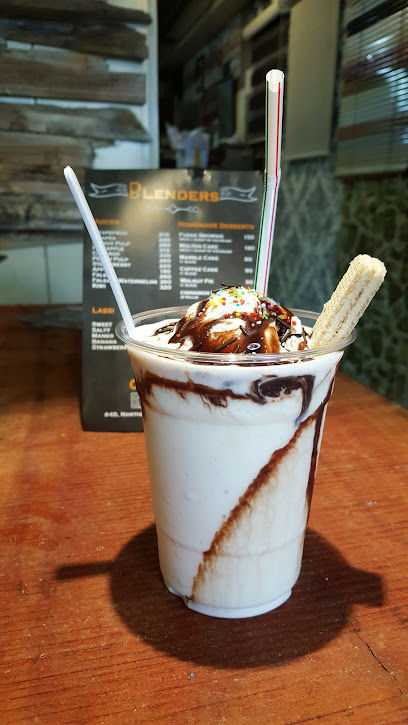
Tayaaaaaa jooooos walaaaaa
Discover Tayaaaaaa jooooos walaaaaa, a vibrant bar in Islamabad offering an array of drinks and a lively atmosphere perfect for socializing.
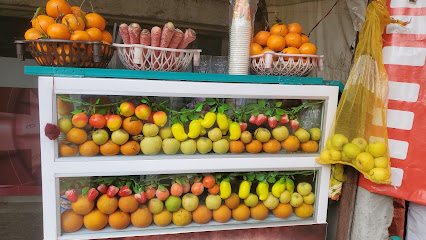
Local Phrases
-
- Helloالسلام علیکم
[Assalamu Alaikum] - Goodbyeخدا حافظ
[Khuda Hafiz] - Yesہاں
[Haan] - Noنہیں
[Nahi] - Please/You're welcomeبراہ کرم
[Barah-e-Karam] - Thank youشکریہ
[Shukriya] - Excuse me/Sorryمعذرت چاہتا ہوں
[Mazrat Chahta Hoon] - How are you?آپ کیسے ہیں؟
[Aap Kaise Hain?] - Fine. And you?ٹھیک ہوں. اور آپ؟
[Theek Hoon. Aur Aap?] - Do you speak English?کیا آپ انگلش بولتے ہیں؟
[Kya Aap English Bolte Hain?] - I don't understandمجھے سمجھ نہیں آیا
[Mujhe Samajh Nahi Aya]
- Helloالسلام علیکم
-
- I'd like to see the menu, pleaseبراہ کرم مینیو دیکھنا چاہتا ہوں
[Barah-e-Karam Menu Dekhna Chahta Hoon] - I don't eat meatمیں گوشت نہیں کھاتا
[Mein Gosht Nahi Khata] - Cheers!چیئرز!
[Cheers!] - I would like to pay, pleaseبراہ کرم میں ادا کرنا چاہتا ہوں
[Barah-e-Karam Mein Ada Karna Chahta Hoon]
- I'd like to see the menu, pleaseبراہ کرم مینیو دیکھنا چاہتا ہوں
-
- Help!مدد!
[Madad!] - Go away!دور ہو جاؤ!
[Door Ho Jao!] - Call the Police!پولیس کو بلاؤ!
[Police Ko Bulao!] - Call a doctor!ڈاکٹر کو بلاؤ!
[Doctor Ko Bulao!] - I'm lostمیں گم ہوگیا ہوں
[Mein Gum Hogaya Hoon] - I'm illمیں بیمار ہوں
[Mein Bemar Hoon]
- Help!مدد!
-
- I'd like to buy...میں خریدنا چاہتا ہوں...
[Mein Khareedna Chahta Hoon...] - I'm just lookingمیں صرف دیکھ رہا ہوں
[Mein Sirf Dekh Raha Hoon] - How much is it?یہ کتنا ہے؟
[Yeh Kitna Hai?] - That's too expensiveیہ بہت مہنگا ہے
[Yeh Bohat Mehnga Hai] - Can you lower the price?کیا آپ قیمت کم کرسکتے ہیں؟
[Kya Aap Keemat Kam Kar Sakte Hain?]
- I'd like to buy...میں خریدنا چاہتا ہوں...
-
- What time is it?وقت کیا ہوا ہے؟
[Waqt Kya Hua Hai?] - It's one o'clockایک بجے ہیں
[Aik Baje Hain] - Half past (10)(۱۰) دس بج کر پندرہ منٹ
[(10) Das Baj Kar Pandra Mint] - Morningصبح
[Subah] - Afternoonدوپہر
[Dopehar] - Eveningشام
[Shaam] - Yesterdayگزشتہ کل
[Guzishta Kal] - Todayآج
[Aaj] - Tomorrowکل
[Kal] - 1ایک
[Aik] - 2دو
[Do] - 3تین
[Teen] - 4چار
[Char] - 5پانچ
[Panch] - 6چھ
[Chhe] - 7سات
[Saat] - 8آٹھ
[Aath] - 9نو
[Nau] - 10دس
[Das]
- What time is it?وقت کیا ہوا ہے؟
-
- Where's a/the...?کہاں ہے...؟
[Kahan Hai...?] - What's the address?پتہ کیا ہے؟
[Pata Kya Hai?] - Can you show me (on the map)?کیا آپ مجھے دکھا سکتے ہیں (نقشے پر)؟
[Kya Aap Mujhe Dikha Sakte Hain (Naqsha Par)?] - When's the next (bus)?اگلا (باس) کب ہے؟
[Agla (Bus) Kab Hai?] - A ticket (to ....)ایک ٹکٹ (سے ....)
[Aik Ticket (Se ....)]
- Where's a/the...?کہاں ہے...؟
History of Islamabad
-
In the early 1960s, Pakistan's government decided to move the capital from Karachi to a more central location. Islamabad was chosen for its strategic location, natural beauty, and potential for future growth. The city was officially designated as the capital in 1963 and has since developed into a modern metropolis.
-
Long before Islamabad was conceived as Pakistan's capital, the region was part of the ancient Gandhara civilization, which flourished between the 6th century BCE and the 5th century CE. The area is rich in archaeological sites, including the ruins of Taxila, a UNESCO World Heritage site, just a short drive from Islamabad.
-
The Margalla Hills, which form the backdrop of Islamabad, have a history dating back millions of years. Fossils found in the hills suggest that the region was once inhabited by ancient species. Today, the Margalla Hills National Park provides a natural escape for residents and visitors, with hiking trails and panoramic views.
-
Designed by Greek architect and town planner Constantinos Apostolou Doxiadis, Islamabad's layout is a blend of modernist principles and traditional Islamic architecture. The master plan divided the city into eight functional zones, including administrative, diplomatic, residential, and green areas, making it one of the most well-planned cities in South Asia.
-
Inaugurated in 1986, the Faisal Mosque is an iconic landmark of Islamabad and one of the largest mosques in the world. Funded by Saudi King Faisal bin Abdul-Aziz, the mosque's unique design by Turkish architect Vedat Dalokay features a blend of contemporary and traditional Islamic architectural elements, with a stunning backdrop of the Margalla Hills.
-
Completed in 2007, the Pakistan Monument symbolizes the unity and progress of the country. Designed by architect Arif Masood, the monument's four main petals represent the four provinces, while the three smaller petals represent the territories. The adjoining museum provides an immersive experience into Pakistan's history and culture.
-
Founded in 1967, Quaid-i-Azam University is one of Pakistan's premier higher education institutions. Located at the base of the Margalla Hills, the university offers a serene environment for academic pursuits and has produced numerous notable alumni in various fields.
-
The Diplomatic Enclave in Islamabad hosts embassies and high commissions from around the world. This area symbolizes Pakistan's international relations and serves as a hub for diplomatic activities. Its secure, well-planned layout ensures smooth operations and interactions between various countries.
-
The Lok Virsa Museum, also known as the National Institute of Folk and Traditional Heritage, was established in 1974 to preserve and promote Pakistan's diverse cultural heritage. Located in Shakarparian Park, the museum offers extensive exhibits on traditional crafts, music, and folklore from all regions of Pakistan.
Islamabad Essentials
-
Islamabad is accessible via Benazir Bhutto International Airport, which serves both domestic and international flights. The airport is approximately 18 kilometers from the city center. You can also reach Islamabad by train, with the main railway station being Islamabad Railway Station. For those traveling by road, the city is well-connected via the M1 and M2 motorways, linking it to other major cities like Lahore and Peshawar.
-
Islamabad offers multiple transportation options including taxis, ride-hailing services like Uber and Careem, and local buses. The Metro Bus service is a reliable and economical option for traveling between Islamabad and Rawalpindi. Renting a car is also an option, but be mindful of local driving conditions and traffic rules. For shorter distances, walking and cycling are convenient, especially in the more developed sectors of the city.
-
The official currency is the Pakistani Rupee (PKR). Credit and debit cards are widely accepted in hotels, restaurants, and shopping malls. However, it's advisable to carry some cash for smaller shops and markets. ATMs are readily available throughout the city, and currency exchange services can be found at the airport, banks, and major hotels.
-
Islamabad is generally considered safe for tourists. However, it's essential to exercise caution, especially in crowded areas. Avoid walking alone at night and keep your belongings secure. Areas like G-9 Markaz and certain parts of Rawalpindi have higher crime rates, so be extra vigilant when visiting these places. Always use reputable transportation services and avoid displaying valuables openly.
-
In case of emergency, dial 15 for police, 16 for medical emergencies, and 1122 for fire services. Major hospitals like Pakistan Institute of Medical Sciences (PIMS) and Shifa International Hospital provide emergency medical care. It's advisable to have travel insurance that covers medical emergencies. Pharmacies are widely available for minor health issues.
-
Fashion: Do dress modestly, especially when visiting religious sites. Avoid wearing revealing clothing. Religion: Do respect local customs and traditions. Remove your shoes before entering mosques and cover your head if required. Public Transport: Do be courteous and give up your seat to elderly passengers. Avoid eating and drinking on public transport. Greetings: Do greet people with a handshake. Address elders with respect, using titles like 'Sir' or 'Madam'. Eating & Drinking: Do try local dishes and accept food offerings graciously. Don't refuse hospitality, as it is considered rude.
-
To experience Islamabad like a local, visit the weekly bazaars known as 'Itwar Bazaars' for fresh produce and local goods. Enjoy a morning walk or jog at the picturesque Fatima Jinnah Park. Engage with locals, who are generally friendly and willing to share insights about the city. Don't miss visiting cultural landmarks like Lok Virsa Museum and Daman-e-Koh for panoramic views of the city. For a unique culinary experience, try the local street food in the F-10 and F-7 sectors.
Trending Landmark in Islamabad
-
Faisal Masjid
-
Shakarparian National Park
-
Fatima Jinnah Park (F-9 Park)
-
Daman-e-Koh
-
Pakistan Monument
-
Lake View Park
-
Lok Virsa Heritage Museum
-
Pakistan Monument Museum
-
Japanese Children Park
-
Daman-e-Koh Park
-
Daman-e-Koh View Point
-
Shah Allah Ditta Caves
-
Fun City | Pakistan's #1 Award Winning Family Entertainment Centre | The Centaurus Mall
-
Shahdara Valley Restaurant
-
Shakarparian View Point
Nearby Cities to Islamabad
-
Things To Do in Rawalpindi
-
Things To Do in Murree
-
Things To Do in Abbottabad
-
Things To Do in Kaghan
-
Things To Do in Peshawar
-
Things To Do in Naran
-
Things To Do in Swat
-
Things To Do in Sialkot
-
Things To Do in Gujranwala
-
Things To Do in Jammu
-
Things To Do in Faisalabad
-
Things To Do in Chitral
-
Things To Do in Lahore
-
Things To Do in Gilgit
-
Things To Do in Amritsar













